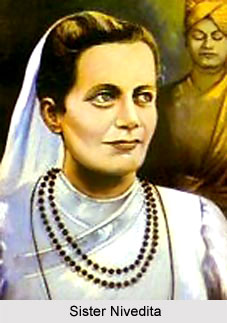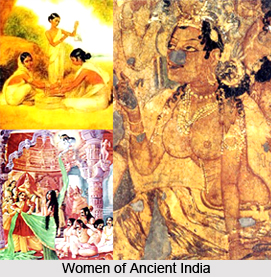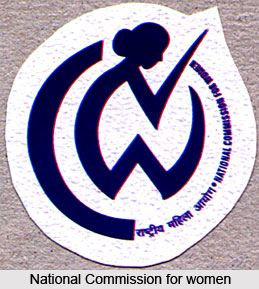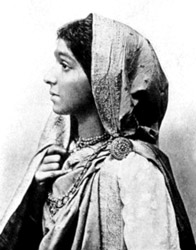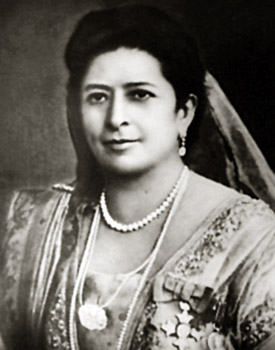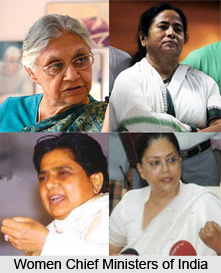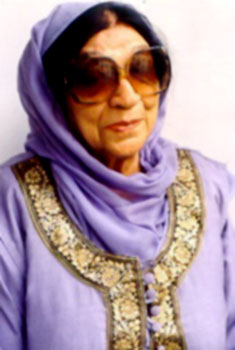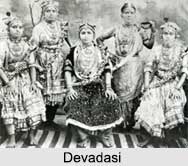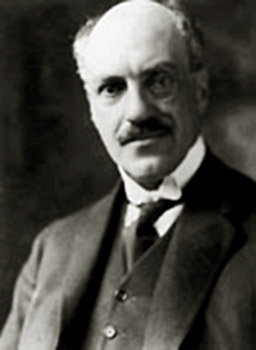 Women`s Rights Movements in British India began with a demand for representation in issues of governance. It was announced by the Secretary of State for India Edwin Montagu in 1917 that the British Government intended to include more Indians in the governing process. To learn more about Indian and European opinion, Montagu and Lord Chelmsford, the Viceroy, planned a tour of India to listen to the views of individuals and groups. Hearing of the proposed tour, Saraladevi Chaudhurain applied for an appointment for members of the Bharat Stri Mahamandal to discuss women`s educational needs. Members of the newly formed Women`s Indian Association in Chennai also requested an audience. Officials informed both groups that only deputations on political subjects were welcome so Mrs. Margaret Cousins sent a new application. She requested an audience for women to present their political demands. On December 15, 1917, Sarojini Naidu (1879-1949), an Indian poetess and long-time Congress worker, led an all-India delegation of prominent women to meet with Montague and Chelmsford.
Women`s Rights Movements in British India began with a demand for representation in issues of governance. It was announced by the Secretary of State for India Edwin Montagu in 1917 that the British Government intended to include more Indians in the governing process. To learn more about Indian and European opinion, Montagu and Lord Chelmsford, the Viceroy, planned a tour of India to listen to the views of individuals and groups. Hearing of the proposed tour, Saraladevi Chaudhurain applied for an appointment for members of the Bharat Stri Mahamandal to discuss women`s educational needs. Members of the newly formed Women`s Indian Association in Chennai also requested an audience. Officials informed both groups that only deputations on political subjects were welcome so Mrs. Margaret Cousins sent a new application. She requested an audience for women to present their political demands. On December 15, 1917, Sarojini Naidu (1879-1949), an Indian poetess and long-time Congress worker, led an all-India delegation of prominent women to meet with Montague and Chelmsford.
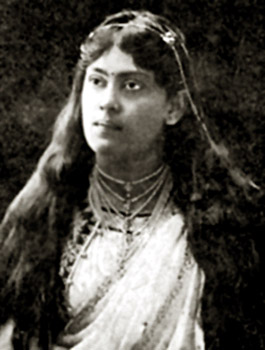 Members of this delegation made an address that documented the awakening of the Indian women to their civic responsibilities. They made it clear that they wanted women to have the status of independent entities in a self-governing nation within the Empire. With this deputation, Indian women began their struggle to secure for themselves political and civil rights. Thus started the women`s rights movement in India.
Members of this delegation made an address that documented the awakening of the Indian women to their civic responsibilities. They made it clear that they wanted women to have the status of independent entities in a self-governing nation within the Empire. With this deputation, Indian women began their struggle to secure for themselves political and civil rights. Thus started the women`s rights movement in India.
Around this time there was seen a change in the British attitude towards women`s rights and their civilising mission. When these women asked for the vote, they claimed they spoke for all women. In the nineteenth century, British officials expressed their concern for "Indian women" and in that earlier time would have welcomed such a claim. However their opinion changed after World War I. Now the British critics of Indian society complained that middle-class Indians had no sympathy for the customs and traditions of the rural masses. Previously it was Indian women who needed protecting; now it was "poor women." Women, who expected the British to welcome their petitions and memorials, were now criticized for ignoring the masses of Indian women.
Even the prominent nationalists were suspicious of women`s demands, although for different reasons. Indian men who encouraged female education and the formation of social organizations did not like hearing women speak about the evils of patriarchy.
Thus the women`s rights movement emerged at a rather conflicted time. By remaining silent these women proved true the stereotype of them as ignorant and subordinate. If they spoke bluntly about the sufferings of Indian women, they were labelled disloyal to their culture. Franchise and civil rights were ideal issues for women to pursue since discussions of them could take place without reference to sensitive social or cultural matters. Nevertheless, women who involved themselves in this work learned the difficulties inherent in the pursuit of women`s rights within a colonial framework.
Following the end of British rule in India the women`s rights movement gained further momentum and went full steam ahead. There were a number of different demands that were articulated by women`s rights groups and these started gaining increasing significance and a wide platform with women from all over the country participating in the move for equality and empowerment.
